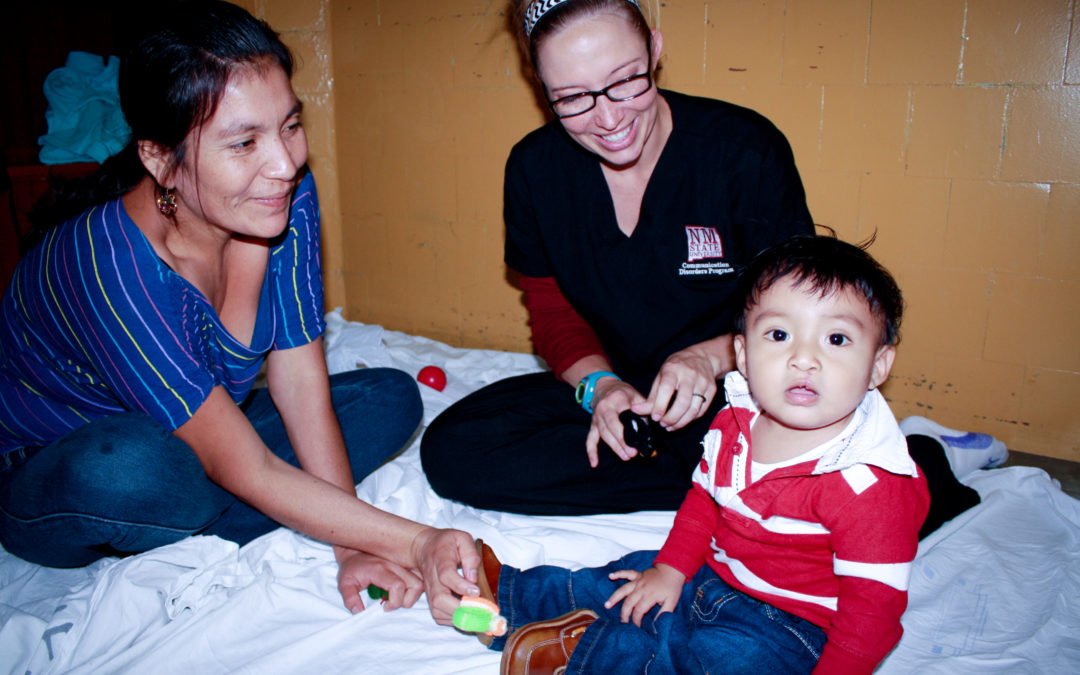For 3 weeks this past summer, I traveled to Peru with 12 speech therapy graduate students from New Mexico State University. Together, we provided 250 hours of therapy for cleft lip and palate, articulation problems, and other speech and language disorders.
I had been on service trips abroad before – but what I learned in Peru was three important lessons in the practice of speech-language therapy:
1. There is no substitute for expert knowledge and the latest tools.
While in Lima, Dr. Marlene Salas-Provance evaluated 12 patients with a flexible endoscope. Dr. Salas-Povance is the department head of the communications disorders program at New Mexico State University and international program leader of the FliP international program. The endoscope allowed Dr. Salas-Povance to view how the speech anatomy of the upper palate functioned during speech tasks. This was significant because this medical technology is not readily available to physicians or speech-language pathologists in Peru.
I remember the anxious mother of one child, Diego. Diego had had two cleft palate repair surgeries – both that had failed. He and his mother had received varying medical opinions about his condition. But the endoscope, combined with Dr. Salas-Provance’s 30 years’ experience, allowed the university cleft palate team to make an accurate assessment of the need for surgery and what type of surgery to perform.
2. Frequent therapy is best.
Speech therapy works best when it is frequent. The students and I provided therapy for 5 days straight. We saw progress. For articulation, it is basic motor learning that takes frequent and accurate practice. Think about learning how to hit a tennis ball or golf swing. These take repeated efforts to build the motor neuron pathways and muscle memory. Just as with tennis, the approximately 72 muscles involved in speech – which encompass the diaphragm, lungs, vocal cords, tongue, lips, phelum – also have to build muscle memory to work correctly. Frequent therapy is key to building those neuronal connections.
3. Children with autism may benefit therapy to address social skills
I also learned that parents of children diagnosed with Asperger’s or Autism are in need of support for social skills across the globe. There was one boy, Eduardo, whose family member was one of the organizers for our trip. I was encouraged by a very appropriate evaluation of Eduardo that had been completed by a Peruvian psychologist. Unfortunately, there were not therapists experienced in intervention for social skills to carry out that portion of his recommended therapy.
We provided that therapy for Eduardo using the teachings of Michelle Garcia Winner. His family brought him for daily sessions focused on how to initiate and maintain a conversation. In just 5 days, we made significant progress.
Attached to the gift his family gave me was a touching letter from Eduardo: “Dear Dr. Manuel, Thank you for the Winnie Pooh and the therapy. I will never forget you.”
Like the New Mexico State University cleft palate team in Peru, pediatric therapists at Jenny’s Speech and Learning Clinic strive to provide speech-language intervention that gives the greatest chance of positive outcomes. We are changing lives.


Recent Comments